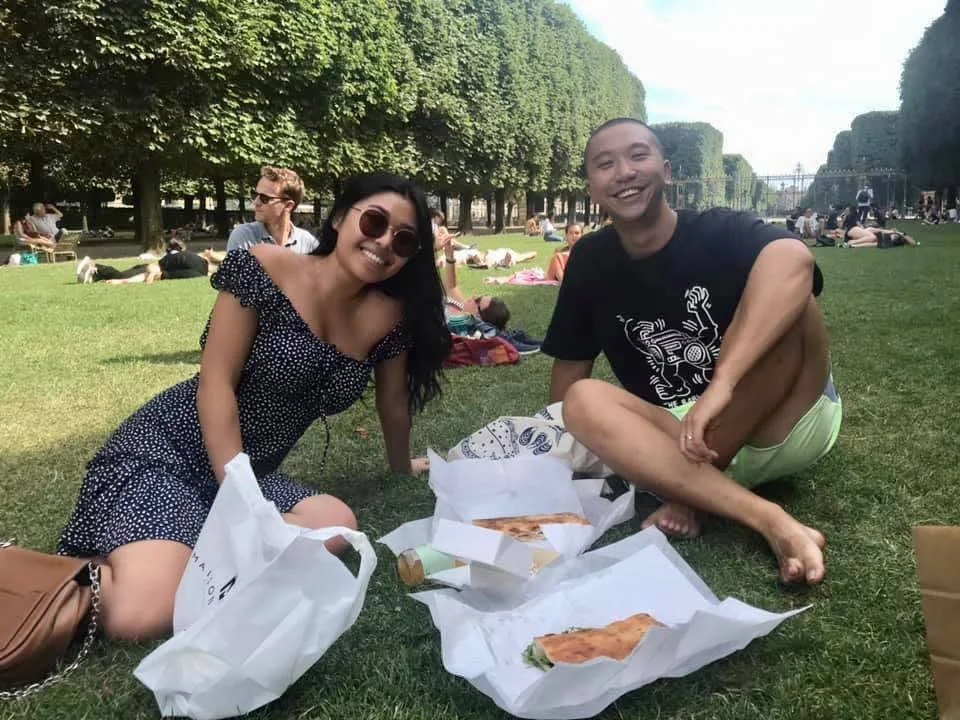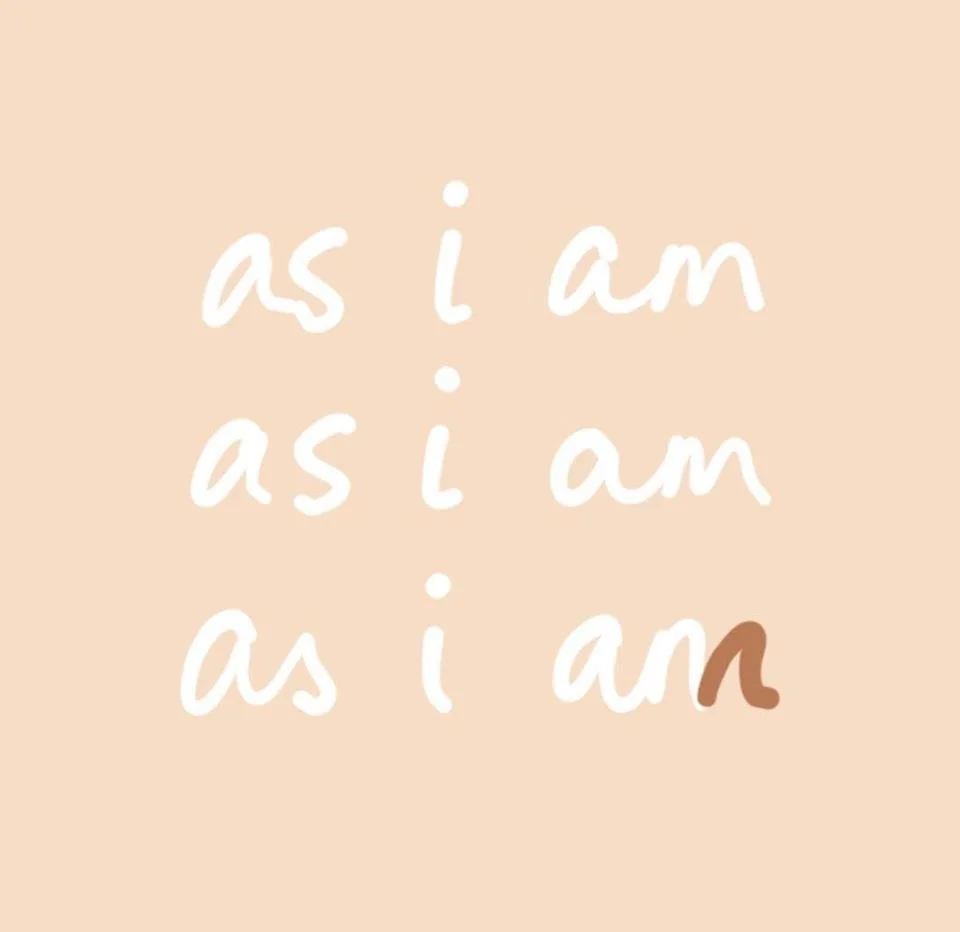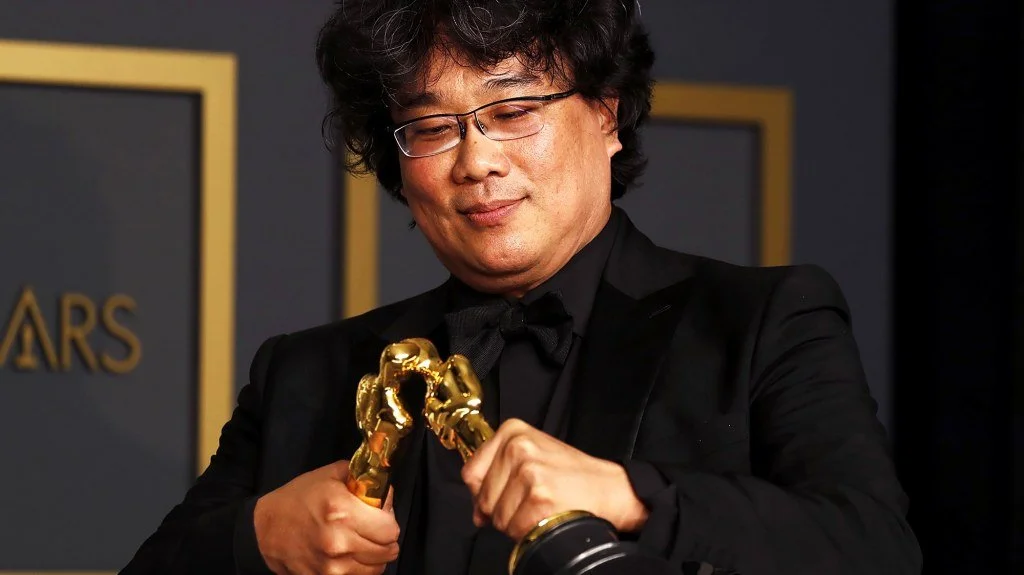‘As I Am’ with Isabella Le
Tell us a little bit about your podcast and its content!
I started As I Am with my friend Jeff, who is a mate from my undergraduate course. The podcast is essentially about unpacking and navigating the Asian identity in the West. We dive into topics ranging from internalised racism and representation to questions like ‘why do Asians play piano?’ and why calling it ‘boba’ instead of ‘bubble tea’ is incorrect.
Isabella with her friend Jeff
We want to cast a spotlight on the Asian narrative in the West as these are stories that are often overlooked. There’s an underlying universal experience of being non-white in the West; navigating your identity is something that all people of color struggle with because it involves grappling with the tension between being othered and embracing the uniqueness of your multi-faceted identity.
What inspired you to start a podcast while in law school?
We are navigating a predominantly white institution, and spotlighting Asians in that institution is much needed. From my experiences so far at law school and my exposure to the industry, I have seen the lack of representation for Asians in the profession and wish to address that.
Honestly, timing worked out well too. I think COVID-19 helped in that it freed up some time for Jeff and me. We just thought “why not now?”. Having these perceptions of what law school is like and what the industry is like, compounded with the fact that we had a little bit of time, was the main reason why we started the podcast.
Tell us a little bit about the practical component of starting a podcast.
It was genuinely just riffing it with Jeff. We Googled a lot and watched YouTube on how to use Adobe Audition, which is the platform we use to record. In terms of funding, we did it all ourselves. We just thought that if we were going to do this properly, we needed to invest in good equipment.
It was a surprisingly quick process. We had thought about the podcast for a couple of days at the end of March and recorded the first episode by the start of April. It is a pretty accessible platform that is effective in democratising conversations, so we are happy that it worked out.
I think vulnerability has a big impact on it. The law school has an environment of showmanship where people are looking at what others are doing and showing off what jobs they are getting.
Especially with upcoming clerkship applications, it would only get more competitive. I just craved something that was the opposite of that: being vulnerable. It was almost a breath of fresh air and my experience at law school has only made me more driven to be vulnerable and raw in the podcast.
Based on the research and reflection and you’ve done for your content, what are some of the most critical issues in the legal industry or in society at large that need to be addressed?
I think that my podcast aims to zone into the need for representation and diversity, particularly so in positions of leadership. The talent of non-white lawyers out there is immense, but they are rarely relegated to positions of leadership. The whole idea of the bamboo ceiling is so evident across many industries and particularly so in law. The idea of meritocracy is that if by working hard and doing your time, you will get where you want; but you realize that it has its limits beyond high school and university.
There was a study on diversity conducted by the Australian Financial Review among Australia’s leading law firms. 25% of all lawyers are Asian but only 8% of partners are Asian. A lot of this has to do with unconscious bias. Asians are seen as more submissive and not equipped to be deal-makers. We are not seen as leaders because we often defer ourselves to harmonious relationships. There is so much cultural nuance embedded in Asian leadership, but these unconscious biases end up impeding progress in representation and diversity, particularly in the legal industry.
It is a long road ahead. The lack of representation and diversity in positions of leadership is a legacy issue. However, I believe that this can be overcome through time and a generational change. In the meantime we are here to spotlight the issue.
What if your favorite episode that you have done on your podcast so far?
“Dear Mum and Dad” was an unexpectedly heavy and emotional episode. It was very cathartic; and I think the next step for me, personally, is to show it to my parents. That episode, in particular, was healing for me because I had never voiced those thoughts out loud before. It was very humbling when listeners reached out to say that they relate to my experience. It was nice having that solidarity and knowing that you did not go through that experience alone because a lot of Asian kids struggle in the same way.
What are you most looking forward to speaking about on your podcast?
I am quite interested in talking about the politics of food and cultural appropriation. I remember bringing bánh mì for lunches to school and eating all of this amazing Vietnamese food growing up, but being teased about it. It is ironic to see that these dishes have now become “cool” to eat, just because they have been accepted by white people; and we see the development of Asian fusion and Asian food as trends in the West. This is deeply problematic: ethnic foods are not trends, and it is dismissive to think and say so.
Cultural appropriation in general is something that I would like to address. For example, to what extent has yoga, a historically Indian practice with deep spiritual significance, been culturally appropriated? There are many things to talk about that aren’t solely around the East Asian-Australian perspective and we want to be sure that our podcast isn’t exclusionary and that everyone can relate to it in any way, shape, or form possible.
Who is your DREAM podcast guest?
Image Credit: David Swanson//Shuttershock
Bong Joon Ho would be incredible. He has directed many great films, but is best known for Parasite. This is something that we are covering in our next episode, which is representation in film and television. He has always been an incredible filmmaker but only became popular in the ‘mainstream’ after Parasite caught the attention of the Oscars. I think he would be amazing to talk to. I would love to pick his brain on the complexity and nuances he imbues in his films, whether that’s class conflict or social inequality. Plus, he’s so cute!
I was also going to say Andrew Yang, but he recently made these comments about how in order to combat the xenophobia around coronavirus, Asian-Americans needed to be more ‘American’. He was just playing into respectability politics which was disappointing to see. In any case, he was one of the first Asian leaders to have commanded such widespread support in US politics, and that’s something.





